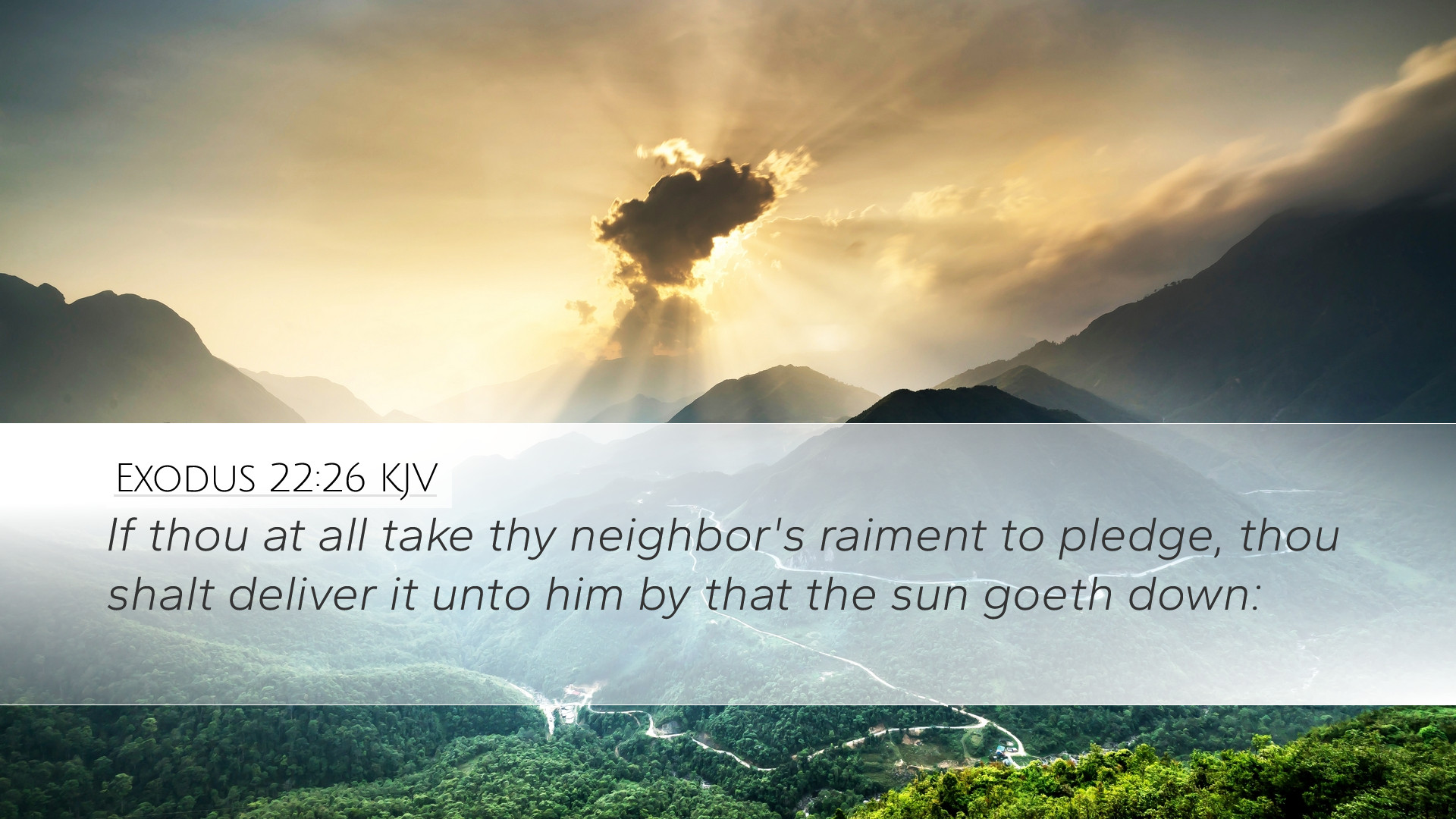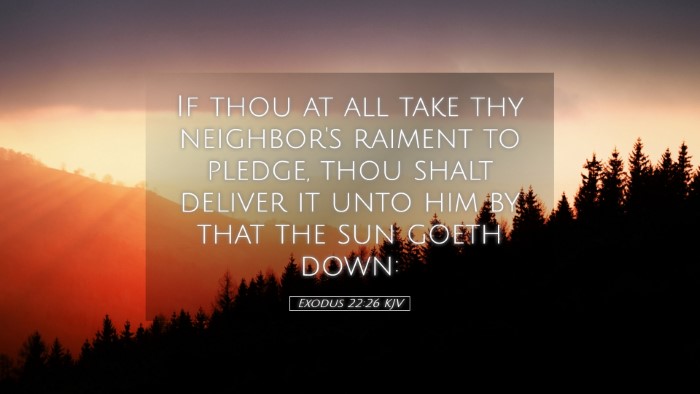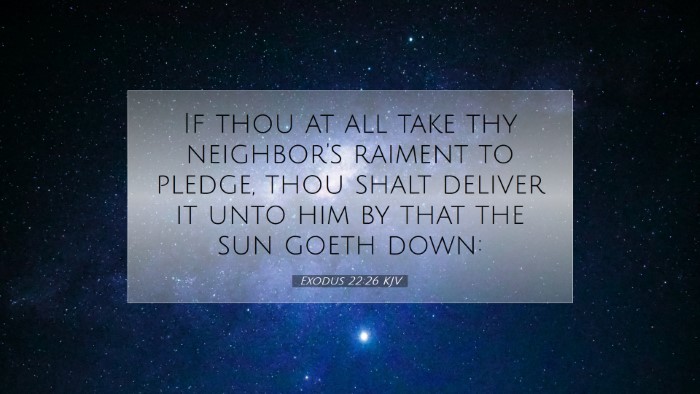Commentary on Exodus 22:26
Exodus 22:26 states, "If you take your neighbor's cloak as collateral, you must return it before sunset." This verse highlights key themes in biblical law, morality, and the importance of social justice.
Historical Context
In ancient Israelite society, economic practices were governed by laws intended to protect the rights and dignity of individuals. This passage emerges from a collection of legal stipulations meant to ensure fairness and compassion in communal interactions.
Key Interpretations
-
Matthew Henry:
Henry emphasizes the social implications of this regulation, arguing that God's law is designed not only for justice but for mercy. He points out that taking a cloak, which is essential for warmth and protection, shows the weight of the responsibility imposed on those who lend or borrow.
-
Albert Barnes:
Barnes highlights the importance of returning the cloak before sunset, drawing attention to the immediate need for the garment by the borrower. This reflects God's concern for human necessities and dignity; even in matters of business, compassion must prevail.
-
Adam Clarke:
Clarke provides insights into the cultural significance of clothing as a daily necessity. He suggests that this command illustrates the principle that the rights of individuals supersede the claims of economic transactions, thereby advocating for humane behavior in every aspect of life.
Theological Implications
The instruction in Exodus 22:26 serves as a microcosm of God's overall concern for justice, righteousness, and human relationships. The verse can be explored through various theological lenses:
-
Justice and Righteousness:
This verse underscores that divine justice must manifest in human practices. By enforcing the return of the cloak, it illustrates that God's people are called to uphold righteousness in their dealings, fostering an environment where the vulnerable are shielded from exploitation.
-
Compassion and Community:
Exodus 22:26 illustrates the necessity of empathy within the community. It acts as a reminder to the Israelite society—often characterized by economic hardship—of the shared responsibilities towards one another, particularly towards those in need.
-
God's Provision:
This verse reflects a broader theological narrative about God's provision for His people. By mandating the return of essential items, it affirms that God cares for both the lender and the borrower, underscoring His nature as a provider and protector.
Applications for Today
For pastors, theologians, and students, Exodus 22:26 offers profound applications for contemporary life:
-
Ethical Business Practices:
This verse encourages us to engage in ethical dealings and restore justice in our communities. It invites reflection on how monetary policies and business practices can affect the marginalized.
-
Advocating for the Poor:
Modern Christians are called to advocate for the impoverished and ensure that their basic needs are met. This verse serves as a biblical principle to inspire activism for social justice and welfare.
-
Creating Just Relationships:
The call to return the cloak before nightfall signifies the importance of preserving relationships in our dealings. Reflecting upon the integrity and fairness in our interpersonal relations is pivotal for harmonious communities.
Conclusion
Exodus 22:26 stands as a potent reminder of the intertwining of divine law and human ethics. Through interpreting this verse within the historical and cultural context, it becomes evident that God's commands are deeply rooted in the concern for justice and compassion. As we strive toward applying these principles today, may we always remember the moral values embedded in these ancient texts, ensuring that they shape the way we interact with our neighbors.


